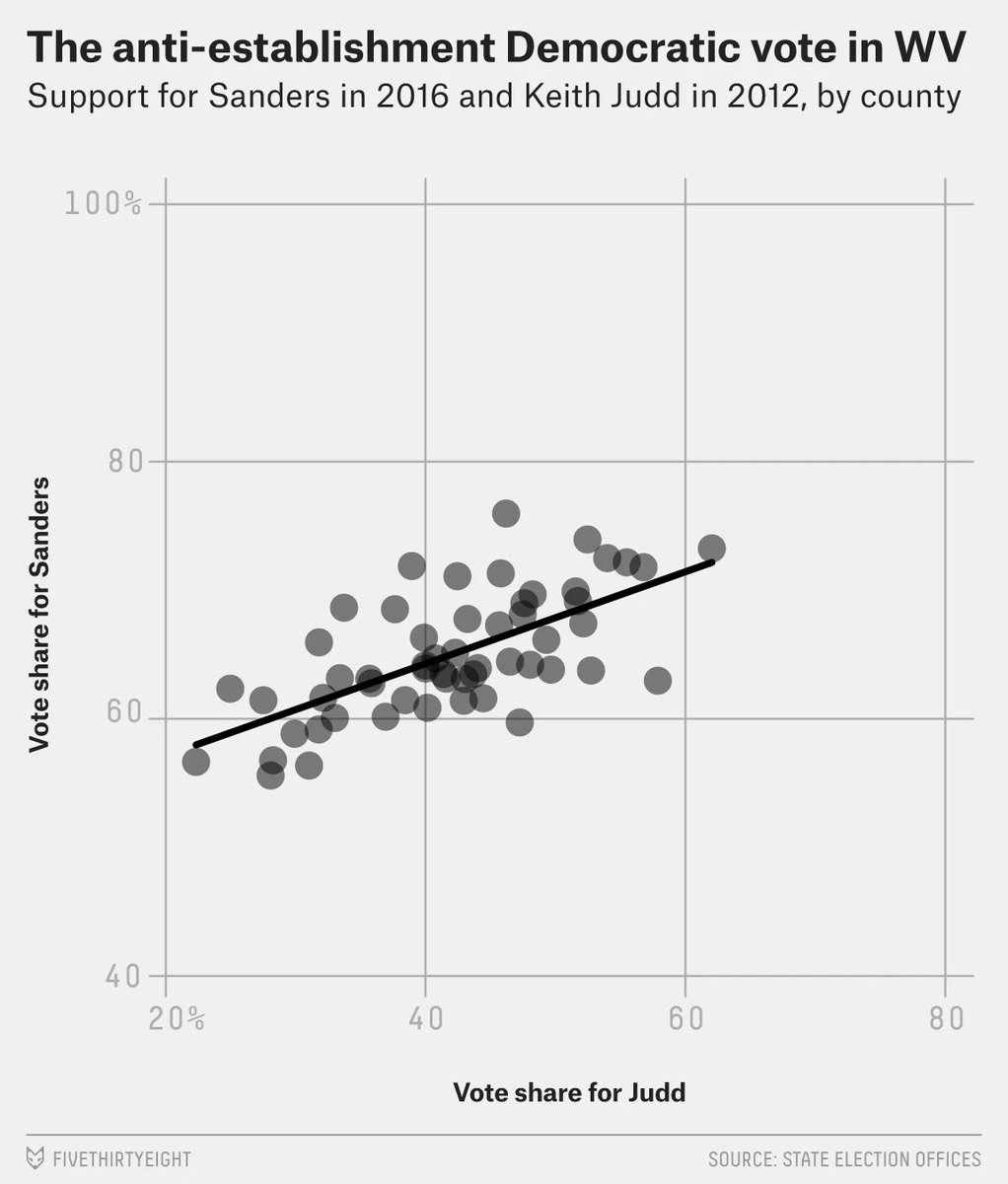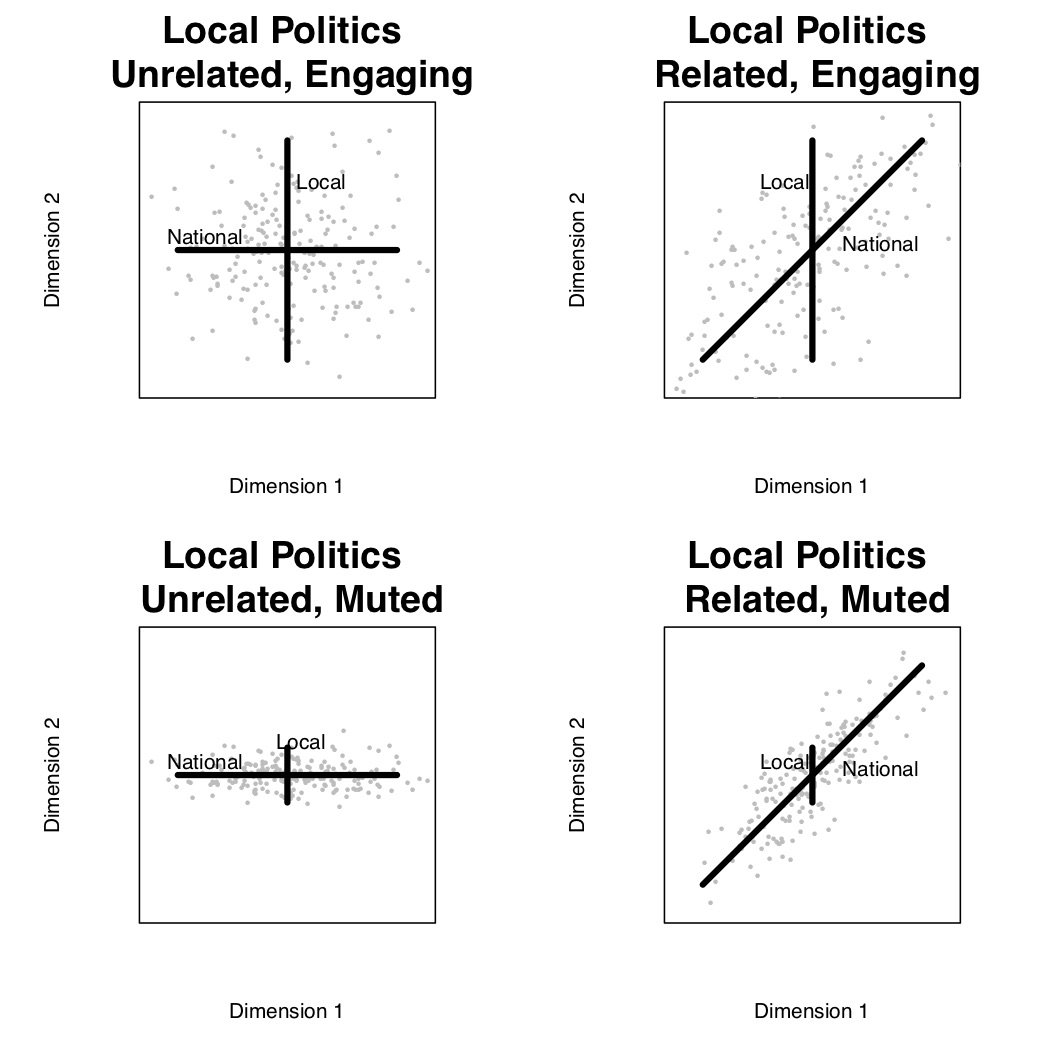
With @ProfHansNoel, I've been doing research that may shed some light on divides within the Senate GOP.
In 2016, we asked groups of 500 GOP and 500 Dem activists via YouGov to tell us who in a pair of senators was more conservative in 3 online surveys throughout the year.
1/
In 2016, we asked groups of 500 GOP and 500 Dem activists via YouGov to tell us who in a pair of senators was more conservative in 3 online surveys throughout the year.
1/
This is a fairly challenging task, since respondents could be asked about any of their party's senators (or centrist out-party senators) at the time. And let's just say not everyone has an opinion about every single senator.
2/
2/

We then used a Bradley-Terry model to generate one-dimensional "perceived ideology scores."
Here are the perceived ideology scores (y-axis) by DW-NOMINATE's first dimension (x-axis).
3/
Here are the perceived ideology scores (y-axis) by DW-NOMINATE's first dimension (x-axis).
3/

Overall, the scores from these activists are highly correlated with NOMINATE's one-dimensional voting score.
Notice folks like Warren and Sanders are almost always listed as more liberal, while Cruz anchors the conservative end of the scale.
4/
Notice folks like Warren and Sanders are almost always listed as more liberal, while Cruz anchors the conservative end of the scale.
4/
It's also noteworthy that Democratic activists appear to distinguish Democratic senators more with respect to ideology than do Republican activists for their party's senators.
5/
5/
When these perceived ideology scores differ from NOMINATE, there's an instructive pattern visible even in 2016, before Trump took office.
Pro-Trump Senators like Jeff Sessions & Tom Cotton are perceived to be more conservative than their voting records suggest.
6/
Pro-Trump Senators like Jeff Sessions & Tom Cotton are perceived to be more conservative than their voting records suggest.
6/
OTOH, anti-Trump Republicans are perceived to be more centrist, even when their voting records (Sasse, Flake) are quite conservative.
So even in 2016, GOP activists were starting to redefine who was conservative based on who was pro- or anti-Trump.
7/7
So even in 2016, GOP activists were starting to redefine who was conservative based on who was pro- or anti-Trump.
7/7

• • •
Missing some Tweet in this thread? You can try to
force a refresh









